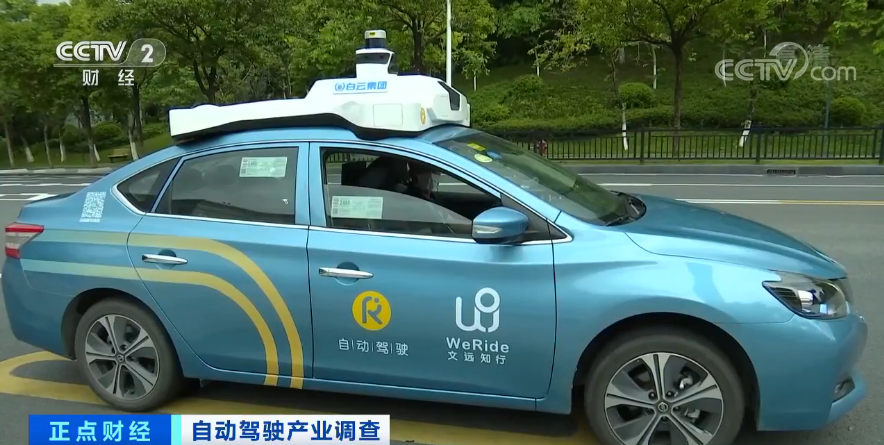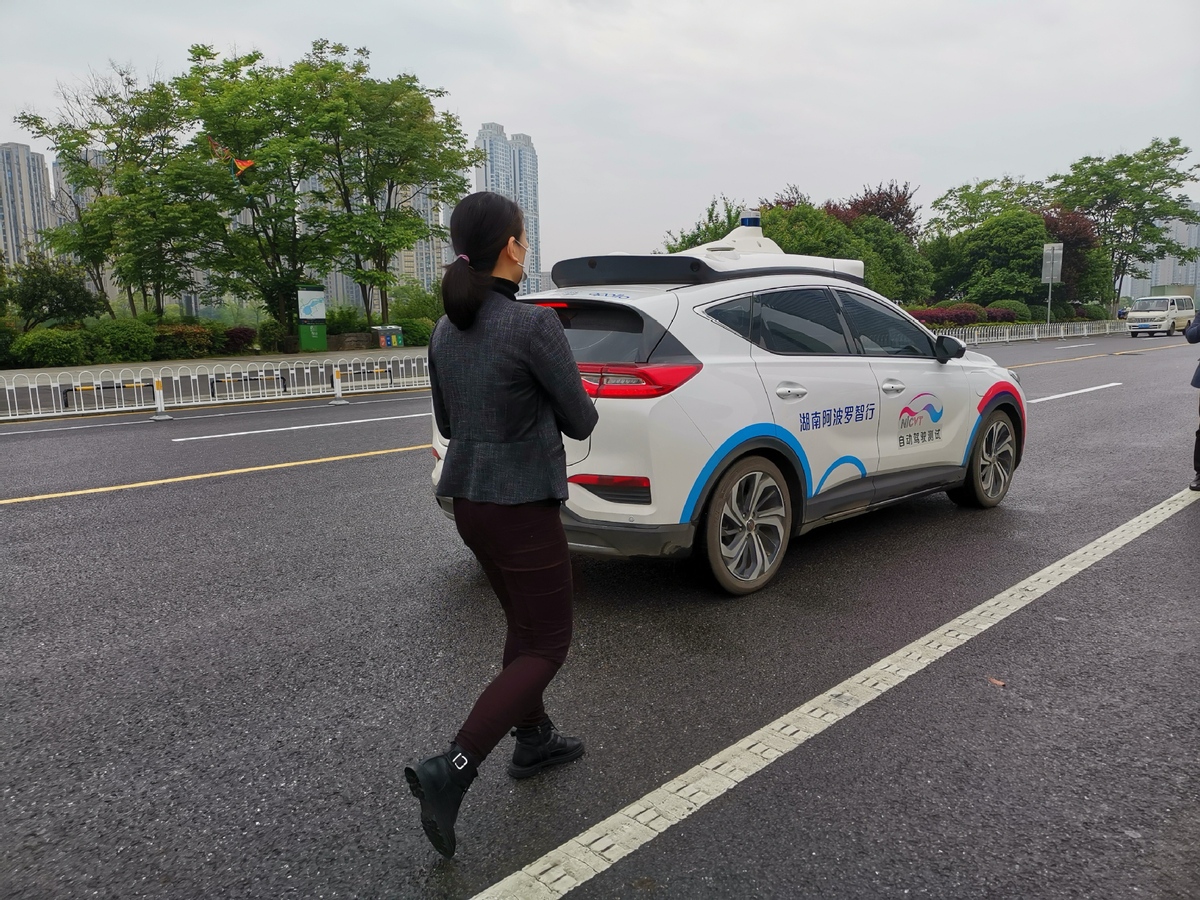Autopilot to usher in golden age in China

Autopilot taxis are being put into trial operation on roads in Changsha, Shanghai and more places in China recently, while autopilot distributing vehicles, sanitation vehicles and police cars are being more frequently spotted as well, the CCTV finance channel reported Wednesday via its WeChat account.
In Guangzhou's Huangpu district, the starting fare for an autopilot taxi is 7.2 yuan ($1.02) while for a normal taxi, it is 12 yuan.
Different from a traditional taxi, an autopilot one is mounted with sensors, including laser radars, millimeter-wave radars, cameras and GPS. A screen is mounted before the back seat of the autopilot taxi where a start button is displayed.
As long as a rider presses the button, the car starts to move. A rider is informed of operation information via the screen at the back seat.
On the driver's seat, a safety supervisor is on alert with two hands over the wheel but without touching it, always ready to take over the driving if necessary.
"In the first month when we operated autopilot taxis, we completed 8,396 orders in Huangpu district, an area spanning 144 square kilometers in southern China's Guangzhou," said Han Xu, founder and CEO of WeRide, an autopilot taxi operator.
"The daily orders reached 271 on average, and 94 percent of the riders gave the experience a five-star rating."
Compared with a taxi at a higher speed, autopilot vehicles for loading items are more mature in their application.

In Futian of southern China's Shenzhen, via 5G networks, an autopilot police vehicle is able to shoot pictures at 4K definition and transmit them back as evidence for police operations.
Also, a button is prepared on the vehicle for people to call the police. Currently, more than 200 such low-speed vehicles have been under operation in the country.
This year, while China is facing downward pressure on the economy, autopilot industries are gaining momentum.
Large-scale financing has happened continuously for companies such as Waymo and DiDi Chuxing's autopilot subsidiary.
Data from China EV100, a think tank focusing on the EV industry, showed that in the first quarter, total financing at home and from abroad had exceeded $3.5 billion, up 34.1 percent year-on-year.
A McKinsey & Co report shows that China will become the largest autopilot market in the world. By 2030, sales in autopilot vehicles in China will reach $230 billion, and the order amount for mobility services based in autopilot driving will reach $260 billion.
However, wide application of autopilot is closely associated with many aspects such as technology, cost, product quality, laws and regulations. From test operation to large-scale application, there is a long way to go.
In the 2020 Government Work Report, AI, 5G and big data centers are considered as key areas in the country's new infrastructure constructions.
The whole autopilot industry will likely usher in a golden age as it stands at the junction of the fields mention above, insiders said.
Internet giants like Baidu, Tencent and Alibaba have announced they will invest more than 100 billion yuan to facilitate smart transportation.
According to Baidu's first-quarter fiscal report, its autopilot car Apollo had won the bidding in car-to-road projects in Chongqing, Hefei and Yangquan.
The company also struck cooperating deals with Nanjing and Guangzhou in new infrastructure construction.

